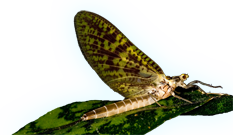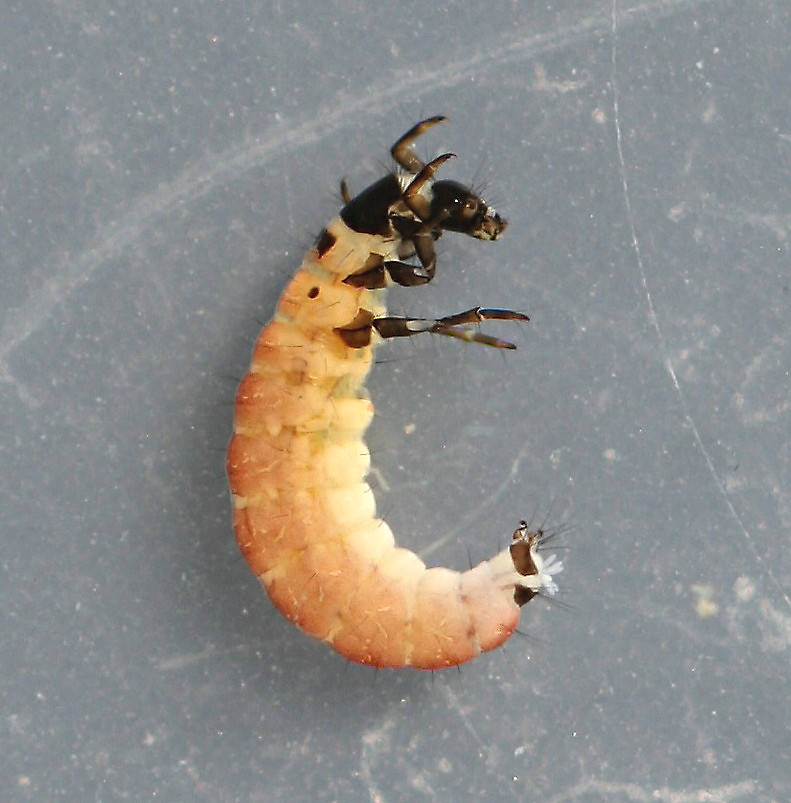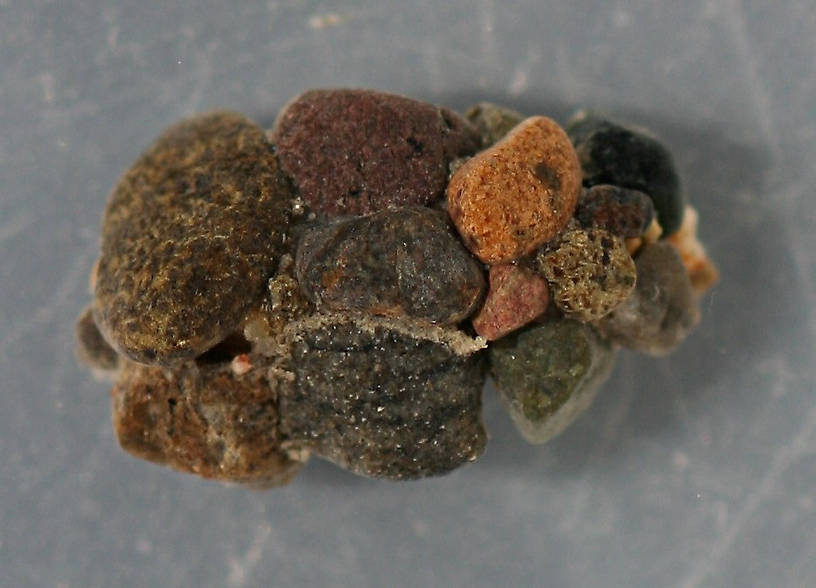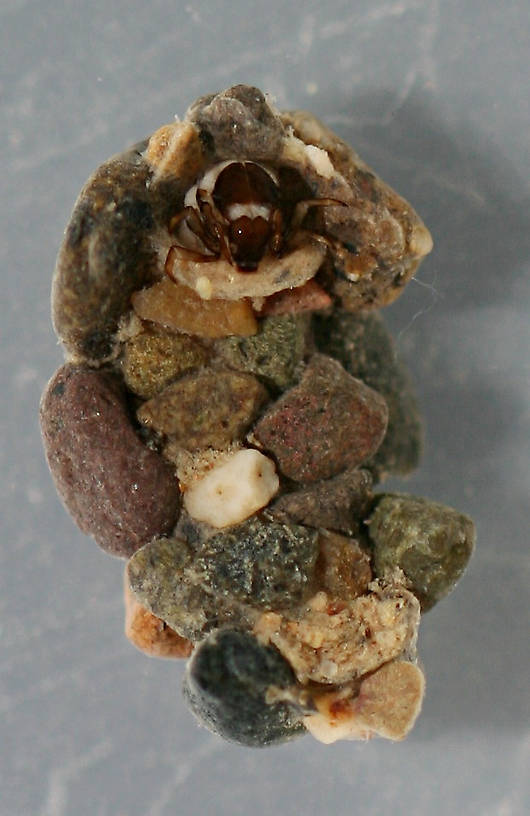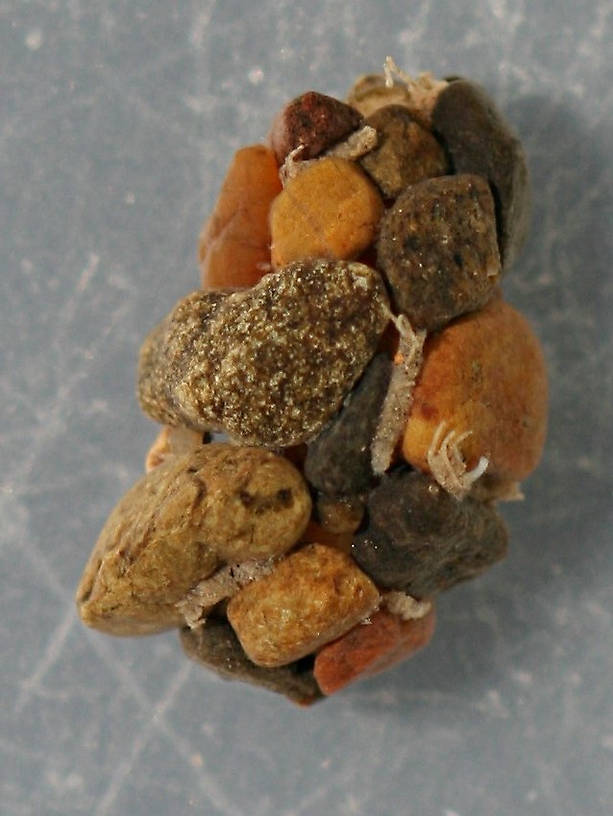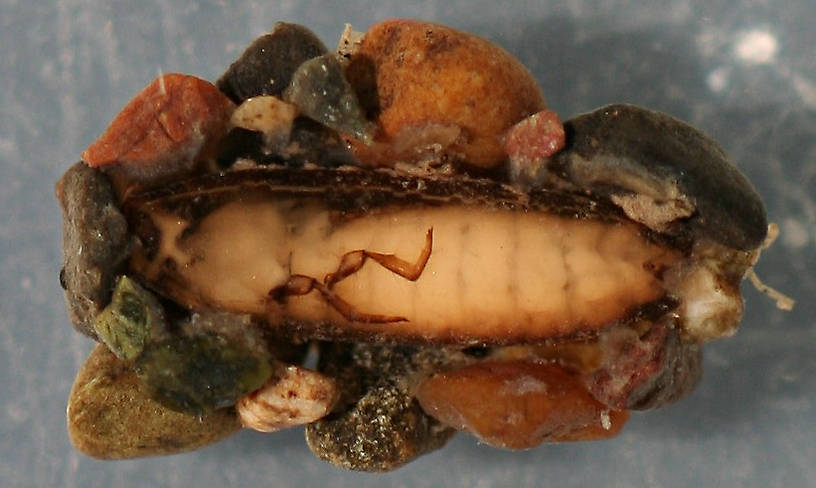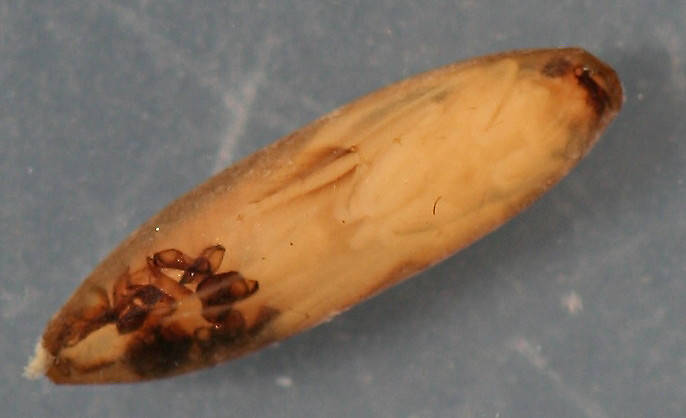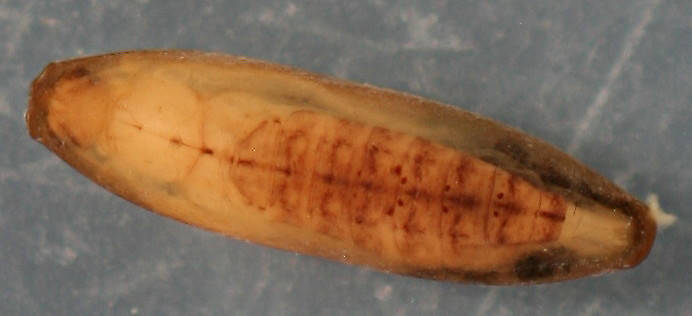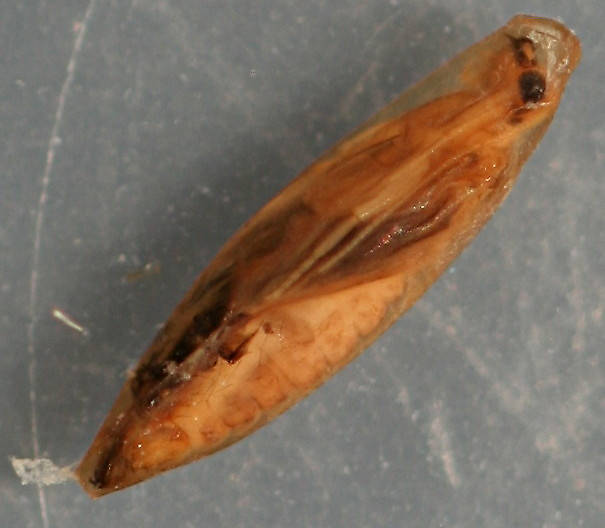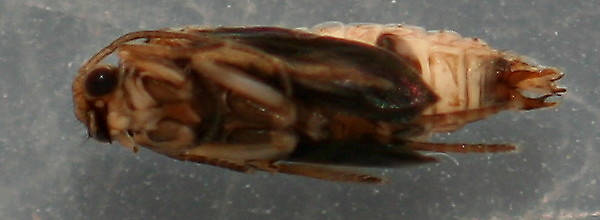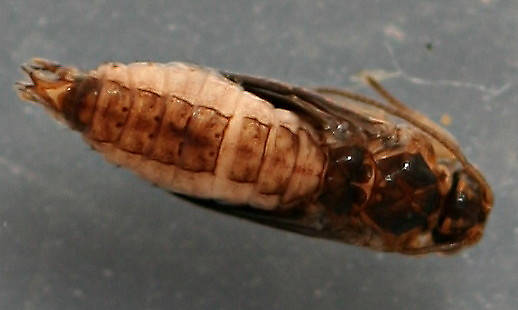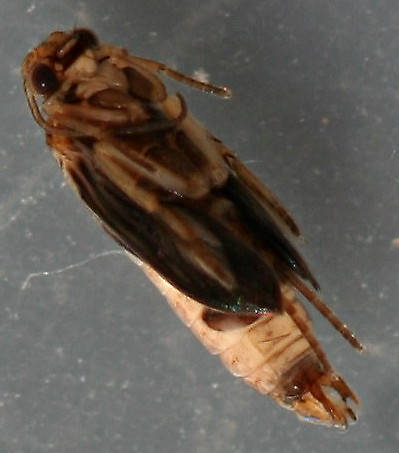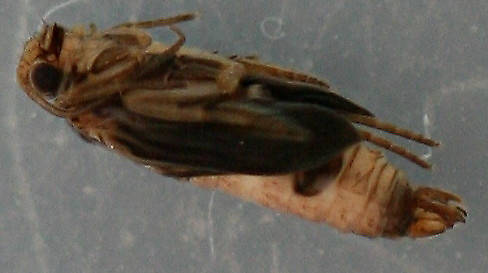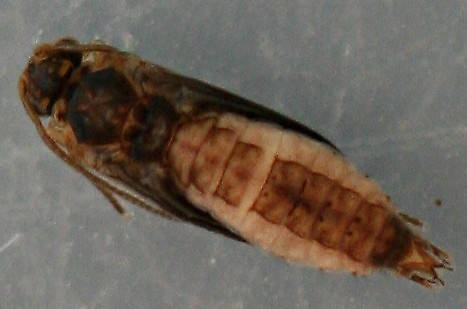Blog & Latest Updates
Fly Fishing Articles
Insects by Common Name

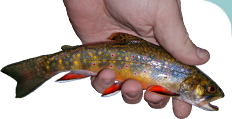
> > Agapetus larva and pupa
| Millcreek | October 9th, 2014, 8:36 pm | |
| Healdsburg, CA Posts: 356 | Agapetus larvae are abundant in the Russian River, being most common in March and April. Usually found on top of gravel and cobble in a slow to moderate current and fairly shallow water. Pupae are found attached to the sides and tops of large gravel and cobble. Larvae were identified to genus using Merritt, Cummins and Berg (2008) and Wiggins (1996). Pupae were identified to family using MCB and identified to genus by association with the larvae. The larval cases have a small piece of silk at each end on the ventral surface that close when the larvae is entirely inside the case. They can be seen in the photo showing the bottom of the case. The pupal cases don't have stones on the bottom but are attached directly to the rock. There is a silk cocoon which is only attached to the case at each end, all other surfaces are unattached. I haven't collected adults so have no idea what the species is. EDIT - Photos of mature pupae added 7/7/15 | |
| Creno | October 9th, 2014, 10:10 pm | |
| Grants Pass, OR Posts: 305 | No mature pupae? Not alot is known about the western species. Little critters that emerge early. Dave Etnier et al recently described many new species from the east. He focused on collecting early in the season. | |
| Millcreek | October 9th, 2014, 10:44 pm | |
| Healdsburg, CA Posts: 356 | Didn't have any mature pupae in the vials I got out today. I've got a couple more sets of samples and will check for mature pupae. If I find any I'll add them to this post. Kind of got side tracked looking for Capnia umpqua at the same time these little fellows were around. | |
| Creno | October 10th, 2014, 1:17 am | |
| Grants Pass, OR Posts: 305 | I can understand that :-) | |
| Millcreek | October 10th, 2014, 1:12 pm | |
| Healdsburg, CA Posts: 356 | Looked at the paper by Dave Etnier et al. A lot of work done there. Looks like some good info on rearing the critters. I see you have one of the Agapetus named after you, A. ruiteri. Looks like you're immortalized, at least until the next taxonomic revision.:) | |
| Creno | July 7th, 2015, 1:04 pm | |
| Grants Pass, OR Posts: 305 | Nice pics as usual. Great example of the midge being carried around, and probably benefiting while not harming the caddis (commensal/phoresy). The pupae is a male and mature enough to determine to species. From here it looks close to Agapetus celatus but the dorsum is off and the proportions don't seem right. | |
| Millcreek | July 7th, 2015, 1:32 pm | |
| Healdsburg, CA Posts: 356 | I can send you a few if you'd be interested. | |
Quick Reply
You have to be logged in to post on the forum. It's this easy:
Related Discussions
| Title | Replies | Last Reply |
| Re: Apatania larvae and pupae In the Photography Board by Millcreek | 3 | Feb 22, 2016 by PaulRoberts |
| Re: Ochrotrichia tenuata (2 more) In the Photography Board by Millcreek | 1 | May 10, 2015 by PaulRoberts |
| Re: What are these?? In the Photography Board by Keystoner | 7 | Oct 8, 2010 by Konchu |
| Onocosmoecus larvae and cases (3 more) In the Photography Board by Millcreek | 0 | |
| Re: Neophylax larvae and pupae (9 more) In the Photography Board by Millcreek | 3 | Nov 27, 2014 by Millcreek |
| Acentrella insignificans nymphs (1 more) In the Photography Board by Millcreek | 0 | |
| Re: Oecetis sp. larvae and pupae (3 more) In the Identify This! Board by Millcreek | 9 | Jul 7, 2015 by Millcreek |
| Re: A couple of Odontoceridae - Marilia and Nerophilus (11 more) In the Photography Board by Millcreek | 4 | Oct 29, 2014 by Millcreek |
| Re: Agapetus are EVERYWHERE!!!! In the Caddisfly Family Glossosomatidae by Litobrancha | 1 | Apr 12, 2007 by GONZO |
| Re: Mature nymphs? In General Discussion by Emerger | 8 | Nov 16, 2007 by Taxon |
Troutnut.com is copyright © 2004-2024 Jason
Neuswanger (email Jason). See my FAQ for information about use of my images.
 privacy policy
privacy policy
